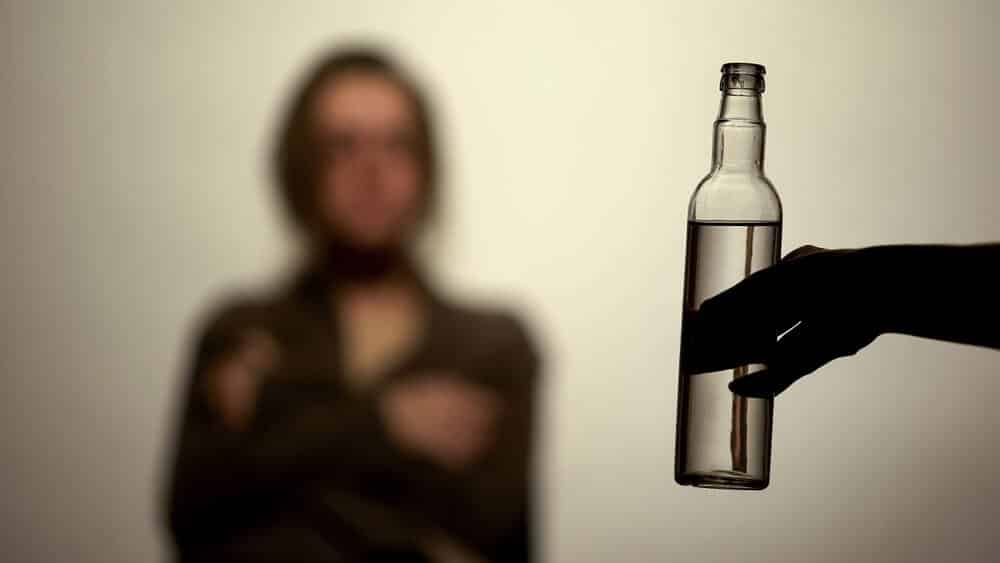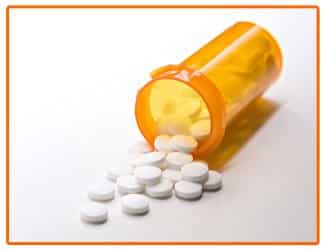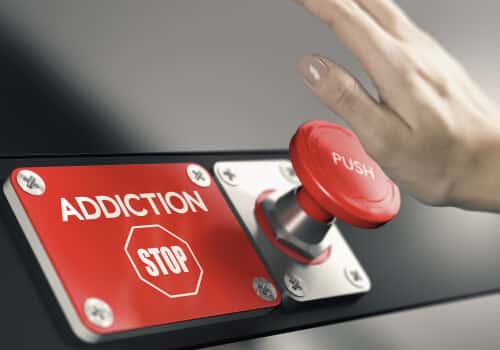Alcohol Withdrawal Detox
Alcohol may be legal, but it can be dangerous when it begins to affect your work, family, and life. When you become dependent on alcohol or addicted to it, your body may begin to have mental and physical problems when you reduce your alcohol intake or stop. This is known as alcohol withdrawal. If you are not a heavy drinker, you are not likely to have any withdrawal symptoms. Alcohol withdrawal often manifests in people who drink heavily for weeks or months. If you are a social drinker, you don’t have to worry about these symptoms.
Table of contents

Alcohol abuse or alcohol dependency is one of the most significant issues still plaguing our modern society. The excessive consumption of or dependency on alcohol can give rise to many social and personal problems. Over the long term, it can have significant detrimental effects on the mind and body. Individuals addicted to alcohol or those who abuse alcohol face several issues due to their addiction, and yet the biggest challenge they face is when it comes to quitting alcohol. This is because quitting alcohol is not just about kicking a bad habit, it involves putting your entire system through what is known as alcohol withdrawal.
If you or somebody you know is planning on quitting alcohol, you should be aware that you’re in for a bit of a challenge. Before you opt for alcohol detox or rehab of any sort, you should be aware of these symptoms and how to seek appropriate medical help so that you do not experience seizures or stroke caused during alcohol detox
Understanding Alcohol Withdrawal
Let’s first start with the basics and then dive deeper into the concept of alcohol treatment In simple terms, symptoms during alcohol treatment can be defined as the changes your entire system goes through when you quit drinking. The most important thing to understand here is that even though alcohol consumption appears to have a temporary effect on your body, its impact can last for years and can potentially modify the way your system functions and behaves.
This is because alcohol affects your central nervous system. It primarily acts as a depressant and suppresses some significant neurotransmitters in your brain. The result is that you end up feeling relaxed and more at ease. However, excessive alcohol consumption can make you experience the depressant effect. You develop a dependency for it over time and this is the most damaging aspect of alcohol abuse, that can happen with any narcotic substance abuse. However, if you suddenly stop consuming alcohol, your neurotransmitters are kicked into overdrive. Your body struggles to adjust to the change and you will end up experiencing numerous physical and mental effects. It is this readjustment phase that is referred to as alcohol withdrawal. This can be very uncomfortable physically and carries the risk of seizures or even stroke.
Here, it’s also important to understand that detox could work differently for different people. One size does not fit all and there are no simple answers to questions like what are the exact symptoms, how long will they last and so on. It all depends on several factors like level of addiction, frequency of consumption, age, sex, lifestyle, etc. For many people, the sheer thought of undergoing withdrawal scares them away from quitting. In general, there is a fairly low level of awareness about the issue and, as a result, people either don’t quit at all or randomly go cold turkey and then face the adverse effects of the addiction. A bad withdrawal experience often prompts people to start drinking again so it is important for you to educate yourself well before embarking on this journey.
Symptoms of Alcohol Withdrawal

Alcohol withdrawal symptoms can range from mild to dangerous. The severity of the symptoms depends on the length of use and the intensity of use. It does not take much time after stopping alcohol use for the symptoms to show up. Mild symptoms could be experienced as quickly as 6 hours after the last drink. They can include:
- Hand tremors or shake
- Headache
- Nausea
- Vomiting
- Insomnia
- Sweating
- Anxiety
- Panic
However, for heavy drinkers, the issues could be much more serious and, sometimes, life-threatening. Hallucinations could occur about 12 to 24 hours after the last alcoholic drink. Seizures are also a possibility within 48 hours, or 2 days. Delirium Tremens (DT) usually start about 2-3 days after the last drink. DT is the rapid onset of confusion caused during alcohol treatment. However, only a small proportion of people suffer from DT. Delirium Tremens could be accompanied by a racing heart, high blood pressure, and fever.
The stages of alcohol withdrawal symptoms
The first stage is usually accompanied by mild symptoms such as nervousness, anxiety, and behavioral changes like mood swings. You will experience physical side effects such as dilated pupils, headaches, shakiness, and sweating. Other symptoms you could have may include a feeling of anxiety or stress, restlessness, and nightmares. You will begin to experience these symptoms about six to twelve hours after your last drink.
The symptoms in this stage closely resemble that of a hangover, but they shouldn’t be ignored, especially for an individual who has consumed a large amount of alcohol over time.
- Stage 2(Moderate Symptoms)
These symptoms begin about 12 hours- 48 hours (2 days) after your last drink. You will begin to show intense signs such as fever, irregular blood pressure, tremors, difficulty in breathing, and a faster heartbeat. It is crucial to seek medical help at this stage.
- Stage 3 (Severe Symptoms)
At 2–5 days after your last drink, severe symptoms will set in. These symptoms could lead to death if left unattended because seizures and delirium tremens, “the DTs” can occur. You should quickly seek medical help if you or a loved one is experiencing any of these symptoms. Symptoms may also include extreme agitation, confusion, high blood pressure, and hallucinations (feeling, hearing, and seeing things that aren’t there).
Severe Symptoms
People with severe symptoms should be treated in a hospital setting. Dehydration is a side effect you will experience, so you will have to be given intravenous (IV) fluids, and your vital signs will be monitored. Other medications can be given according to your physician’s instructions so that the alcohol treatment would be favorable.
Consider supervised care to avoid accidents from seizures and hallucinations.
Whatever stage of alcohol detox you are experiencing, mild, moderate, or severe, to stop drinking altogether is the best long-term treatment. You’ll need to make some changes. It may be that you need to start living in an environment that restrains you from alcohol use, or you could consider joining a support group.
How to Diagnose Alcohol Withdrawal
Apart from the individual’s drinking history, scales can be used to determine the treatment. CIWA, AWS etc. are scales that are used to diagnose and quantify withdrawal from alcohol.
A good alcohol treatment facility or an alcohol detox center in New Jersey will not only utilize all available tools to diagnose and quantify the severity of symptoms, they will also educate the individual about the dangers, as discussed above.
Alcohol Withdrawal Treatment
Depending on the severity of your symptoms, treatment for AWS could vary. Alcohol withdrawal is a serious and complicated issue, one that is regularly discussed in medical circles. During this phase, one needs to not only deal with the symptoms which can be potentially life-threatening but also ensure that the patient doesn’t slide back into drinking as a result of those symptoms. There is always a fear of acute withdrawal symptoms kicking in as well. Which is why WHO and the NHS have put in place specific guidelines when it comes to dealing with something like this.
Mild and Moderate Symptoms
You can treat mild and moderate symptoms at home. You can decide to remain at home while you are taking alcohol treatment. However, it is advisable to have someone stay with you to make sure your symptoms don’t worsen. Seeing your doctor daily may be necessary as you will need to be monitored until you are stabilized.
Supported Withdrawal
First, let’s begin by diving deeper and understanding the concept of supported or medically supported alcohol treatment. It is a well-known fact that alcohol detox will cause drastic changes in your body and will affect your day-to-day life. Besides changing the way your brain reacts and functions, it also results in a number of deficiencies that have to be addressed to avoid further complications. To this end, doctors recommend a course of medication to go along with your alcohol treatment process. Why is this necessary? Let’s explore.
Withdrawal symptoms caused due to alcohol addiction can completely throw your body out of balance. This includes pulse rate, base temperature, blood pressure, and more. A doctor treating such patients will first seek to stabilize all these fluctuating physical aspects. The aim is to keep your system running as normally as possible. Maintaining water balance in the body is also a very important factor. During their time at alcohol rehab a person can experience a number of issues like vomiting and diarrhea which further lead to acute dehydration.
In such cases, intravenous fluids might be required to maintain the smooth functioning of the liver and kidneys. Electrolyte imbalances can also occur from the dehydration: reports indicate that low levels of magnesium can, in fact, give rise to seizures and delirium. IV fluids can, once again, help address this problem. Alcoholics are also at risk of developing something known as Wernicke’s Syndrome. This is a condition that manifests in the form of extreme confusion, weakening of muscles, and ocular abnormalities. This mainly happens due to the depletion of thiamine in the body. Most doctors recommend starting the detox with a dose of thiamine with subsequent lower doses at regular intervals.
Outpatient Treatment For Alcohol Withdrawal

Outpatient care for alcohol rehab is a more recent trend, based on the belief that addiction is a disease and not a behavioral issue. In the past, people had no other option but to book themselves or their family members into rehab, as addiction was viewed as a behavioral problem. Now, more and more people are opting for outpatient care and it has proved to be remarkably effective. Some reports indicate that almost 70% of people receiving alcohol treatment are doing so in an outpatient capacity. In general, no specific statistics exist to indicate whether this form of treatment is better or worse than getting admitted to a treatment facility; and, in general, outpatient care is easier and more convenient. Besides, it also helps patients stay committed since they don’t need to isolate themselves from their friends or family.
There are no specific criteria used to determine whether or not somebody qualifies for outpatient care. More recently, only people who do not have a modicum of family support are recommended for inpatient detox. Even individuals with a history of seizures or delirium tremens can choose to receive outpatient treatment. Outpatient treatment works better when the patient has some support at home. The family can also monitor their physical symptoms and ensure they are safe.
Inpatient Treatment
Inpatient care is the traditional option when it comes to alcohol rehab, though it is not necessary for most people. Only those people who do not have any familial support need inpatient treatment. Also, people experiencing active delirium tremens or seizures may be good candidates for inpatient treatment. In an inpatient treatment facility, patients are given the same medical detox protocols as in an outpatient setting. Support at home is not needed as the patient is isolated from his living environment and monitored 24 hours a day. The detox phase is not easy and monitoring helps. Inpatient treatment isolates the patient from external influences. Although for a temporary period of time.
Stay Hydrated
The importance of staying hydrated cannot be overstated when it comes taking alcohol treatment caused due to alcohol addiction. During the detox period, your body constantly loses fluids and essential minerals along with it. So make sure you are not only drinking plenty of water but also loading up on electrolytes. Instead of opting for electrolyte-rich juices or drinks, you can always consume fruits by including them in your daily diet.
Prepare for The Cravings
Alcohol is a highly addictive substance. If you are at the point where you are facing alcohol detox symptoms, you should know that you will constantly crave alcohol. It goes beyond a simple mental craving and becomes an overarching physiological need akin to thirst, hunger or the need to sleep. Be prepared for the cravings and have your strategy in place beforehand. Many people take up hobbies to keep them distracted, while others prefer to surround themselves with friends or family. If you feel you cannot do it by yourself, seek out the help of counselors. These counselors will handhold you through your treatment process and you will always have somebody to call in times of intense cravings. Whatever method you feel will work for you, make sure you have a plan in place well in advance.
Identify Somebody You Can Count On
Dealing with alcohol detox should never be a solo effort. Find a close friend or family member who you can rely on and let them handhold you through this journey. Confide in them and don’t be ashamed to share everything you are going through. They can not only help you through the journey but also act as an emergency contact in case you feel you might start drinking again. Very often, isolation and loneliness are the main causes of people giving up on their detox process.
Seek Group Therapy
AA meetings are an essential part of the recovery process. Surround yourself with people who are undergoing the same ordeal. Hear their stories and share your own. This will make you feel less lonely. On the other hand, this also helps instill a sense of community and common purpose. Alcoholics and people in alcohol rehab often feel alienated and misunderstood. Group therapy sessions help them to form a bond with other such people – and an individual struggle turns into a group effort. Many community centers offer self-help groups for people suffering from a dependence on alcohol. Go to a meeting and try to participate. Be vocal about your struggle and don’t be afraid to talk about the problems you face on a day-to-day basis. This will also help you deal with your cravings through positive reinforcement within the support group.
Avoid Triggers
Every recovering alcoholic or person taking alcohol treatment will have certain significant triggers that might push them to consume alcohol. For some people, it could be something as simple as hanging out with a particular group of friends on weekends, while for others, stress could be an important trigger. You need to ask yourself one simple question – when do you feel like drinking the most? Then, make a list of all the things that might push you to have a drink and avoid them completely. If you have a social group that insists on drinking regularly, politely decline to spend time with them. If you know that work or personal stress might push you towards drinking, you need to find new ways of dealing with those stressors. Again, having a friend or family member who you can rely on can be of great value.
Meditate and Exercise
While this might sound like very generic advice, meditation can help calm your body’s agitation during the detox process. Through guided meditation, you will be able to ease your breathing, calm your heart rate, and become more mindful of your system. Exercise, too, can positively impact your body during treatment. The release of endorphins after a workout can help negate a lot of the cravings. This is why many people choose to take long walks to calm their restless systems. Simple exercises will also help your body heal from alcohol abuse. Setting a regular exercise routine is always recommended by doctors and is of special importance when it comes to coping with detox treatment at alcohol rehab.
Helping someone Deal With Alcohol Withdrawal

If somebody you know is dealing with alcohol detox or seeking to quit drinking, there are many ways in which you can be of assistance. First and foremost, urge them to seek professional help. The detox process will be more successful if guided by a medical professional and less dangerous. You can offer to act as a companion through the alcohol treatment process and be their point of contact. This might mean giving them a lot of your time and being available whenever they need you. You will have to understand that most individuals suffering from addiction cannot take up alcohol treatment alone so it’s always a good idea to learn as much about the process as you can so you can give them the best possible support.
Alcohol treatment might be a painful and sometimes long process. But it is a step in the direction of a stronger and healthier life. If you are thinking about quitting alcohol, you should know that you are not alone. You can always approach one of the alcohol detox centers in New Jersey for an effective alcohol detox treatment. Don’t be afraid to seek help and always prepare for the worst.
Commonly Asked Questions on Alcohol Withdrawal
When does alcohol withdrawal start?
It differs from one individual to the other. The more heavily you drink alcohol, the more likely you are to be in dire need for alcohol withdrawal.
What Is Alcohol Withdrawal?
When an individual has been consuming alcohol heavily for weeks, months, or years, he or she may experience physical and mental issues when they try to stop drinking alcohol. The combination of these uncomfortable effects is called alcohol withdrawal. Symptoms can range from mild to dangerous, depending on the length of use and amount of use.
An individual who has been consuming alcohol for a long period of time, but in limited quantities of irregularly, is unlikely to experience withdrawal symptoms if they stop drinking alcohol. If an individual has experienced alcohol withdrawal once in their lifetime, they are more likely to experience it again when they stop drinking alcohol.
How long does alcohol withdrawal syndrome last?
Alcohol withdrawal symptoms such as tremors can last anywhere between three days to several weeks.
When would I expect to feel the withdrawal effect?
The symptoms of alcohol withdrawal tend to start within 6 to 24 hours after the person’s last drink of alcohol.
How long does alcohol withdrawal last?
It depends on how long it takes your body to flush every trace of alcohol.
What Causes Alcohol Withdrawal Symptoms?
Alcohol is a “downer,” as it depresses an individual’s central nervous system. The functioning of the brain slows and it changes the way in which messages are sent back and forth from the brain.
Over time, the central nervous system of the person abusing alcohol adapts to having alcohol in the system all the time. The system works harder to keep the brain in a more awake state and the nerves communicating with one another.
When the individual abusing alcohol stops alcohol use abruptly, their brain stays in high gear and causes alcohol withdrawal symptoms.






























